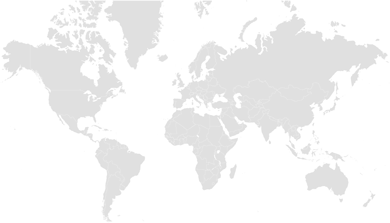Case study
2015 • EAWAG SEEK (Sludge to Energy Enterprises in Kampala): co-processing faecal sludge for fuel production
The SEEK (Sludge to Energy Enterprises) Project, implemented in Kampala, Uganda, explores faecal sludge (FS) as a resource for solid fuel production and electricity generation. With financial constraints limiting effective faecal sludge management (FSM), resource recovery from FS treatment end products offers a potential revenue stream to offset treatment costs. Through pelletising and gasification, FS can serve as an industrial fuel, contributing to sustainable waste management, energy security, and environmental protection. The project worked to optimize FS drying, reduce ash content, and develop business models for large-scale adoption.
Recovered Materials & Products
Electricity
Solid fuel
Waste Streams
Faecal sludge
Food processing by-products
Confirmed countries
United States of America


Background and Context
This initiative is based in Kampala, Uganda, and focuses on transforming faecal sludge (FS) into a valuable energy resource. The project addresses key challenges in faecal sludge management (FSM), including financial constraints, limited access to sustainable solid fuels, and the high moisture and ash content of FS, which affects its fuel quality.
Approach
The project utilizes innovative waste-to-energy technologies, including pelletising wet faecal sludge for solid fuel production and co-processing FS with urban biowastes such as brewery waste, sawdust, and maize cobs to improve fuel quality. Additionally, FS pellets are gasified to generate electricity, further exploring market opportunities for FS-derived fuel and energy. Key stakeholders include Eawag/Sandec, Makerere University, Bioburn, the Centre for Research in Energy and Energy Conservation (CREEC), and the Uganda National Water & Sewerage Corporation (NWSC). Implementation steps involved assessing FS-derived fuel markets across Sub-Saharan Africa, developing a pelletising machine for FS treatment, piloting pellet production at the NWSC Lubigi Wastewater and FS Treatment Plant, and investigating gasification for electricity generation. The project also conducted environmental safety studies, focusing on heavy metal concentrations in FS-derived fuel.
Outcomes and Impacts
The project successfully demonstrated FS as a viable industrial fuel alternative, improving FS treatment efficiency by co-processing it with urban biowastes. Additionally, the initiative advanced knowledge on FS gasification and pellet-based electricity generation, highlighting the potential for FSM to contribute to sustainable energy solutions.
Lessons Learned
The project optimized FS drying and pelletising processes to enhance energy value, identified market opportunities for FS-derived solid fuel, and demonstrated increased revenue generation potential for FSM through energy recovery. Despite these successes, the high ash content in FS reduces its energy value, while gasification of FS pellets poses risks of clinker formation. Moreover, pollution control measures are necessary to manage emissions effectively. The FS pelletisation and gasification model has strong potential for application in other cities facing FSM challenges. However, successful replication requires collaboration between sanitation service providers and energy markets to create a sustainable demand for FS-derived fuels.
Learn more
The case study was extrated from the publication linked below: Gold, M., Niwagaba, C., Studer, F., Getkate, W., Babu, M., & Strande, L. (2015). Swiss Federal Institute of Aquatic Science and Technology—Eawag. Sandec News, 16, 10–11.
https://www.eawag.ch/fileadmin/Domain1/Abteilungen/sandec/publikationen/EWM/Treatment_Objectives/Production_Pellets_and_Electricity_from_FS.pdf
More information about the SEEK - Sludge to Energy Enterprises in Kampala project, including more publications, is available free of acces or upon request in EAWAG's website at the link below:
https://www.eawag.ch/en/department/sandec/projects/ewm/seek-sludge-to-energy-enterprises-in-kampala/
Technologies
Gasification
Themes
Assessment
Business models
Technologies